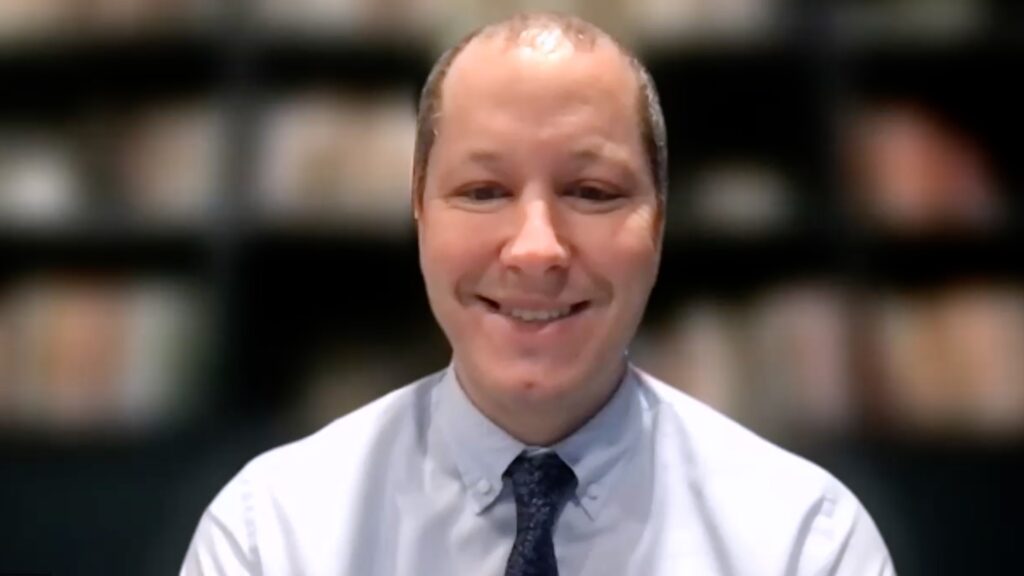
“If I can play even a small part in breaking that silence, reducing the stigma, progressing the discussion and hopefully pushing the science forward, that would feel like a huge success.”
Dr Alicia Little is quickly establishing herself as a leading voice in dermatology, combining compassionate patient care with forward-thinking research.
As an Assistant Professor at Yale School of Medicine and Director of the Yale Vulvar Dermatology Clinic, she specialises in women’s skin health and autoimmunity, treating complex conditions including vulvar skin diseases, cutaneous lupus, dermatomyositis, morphea, lichen sclerosus (LS) and lichen planus. Alongside her clinical work, she leads immunological research focused on the cellular mechanisms underpinning autoimmune skin diseases, with the aim of identifying novel therapeutic targets and advancing treatment strategies to improve patient care.
In recognition of her growing impact in the field of women’s health dermatology, we are proud to highlight Dr Little as a touchDERMATOLOGY Future Leader 2025.
Interestingly, I didn’t initially set out to pursue vulvar and women’s health dermatology. In fact, I wasn’t even aware that it was a subspecialty within dermatology until my final year of residency.
During my third year, we had a visiting lecturer, Dr Lynne Margesson, who was practicing as a vulvar dermatologist at the Dartmouth Geisel School of Medicine. She gave a lecture on vulvar dermatology, which was the first time I’d really been exposed to this field. It occurred to me that Yale did not have a vulvar skin disease specialist, and that I could fill that gap, but to do so, I wanted more exposure, mentorship and knowledge about these types of skin diseases.
As a physician–scientist and immunologist, I’ve always been interested in autoimmune diseases. Many vulvar dermatoses fall into that category and are often poorly understood and understudied. Out of curiosity, I searched the NIH RePORTER to see how many active NIH grants were focused on lichen sclerosus. At the time, there were none. Previous studies were scarce and often centered on the effect of LS on male urethral stricture disease, which, while also important, occurs far less frequently than vulvar lichen sclerosus.
The lack of research and recognition in this area, coupled with the clear need, motivated me to explore vulvar dermatology further. I attended a meeting of the International Society for the Study of Vulvovaginal Disease (ISSVD), where I met Dr Libby Edwards, one of the original leaders in vulvar dermatology. She kindly agreed to mentor me, and I later completed an observership with her at the Mid-Charlotte Dermatology and Research Southeast Vulvar Clinic.
Since then, I’ve joined forces with several of Dr Margesson’s and Dr Edwards’ former mentees and trainees. Together, we founded the Vulvar Dermatoses Research Consortium (VDRC), and I’ve become more involved with the ISSVD. Over the past five years, I’ve dedicated myself to this field and now work as a specialist in vulvar dermatoses.
One of the things I’m most excited about is the growing interest, not just from trainees, but also from other attendings and the pharmaceutical industry, to better understand and address the needs of patients living with vulvar dermatoses. For decades, there has been limited progress in clinical trials for conditions like lichen sclerosus, but we are now starting to see change. New therapies are being developed that target specific pathways, including cytokine specific agents and JAK inhibitors. At the same time, advances in tools such as transcriptional profiling are providing deeper insight into these conditions and creating real potential for identifying more effective treatment options.
Just as importantly, there’s also a new generation of passionate clinicians coming into the field. When we founded the VDRC, we were amazed by how many medical students, residents and early-career faculty members wanted to get involved. It’s really encouraging to see so many people invested in pushing research in this area forward.
I hope to contribute two main things. First, I’d love for my research to help advance the care of patients with vulvar dermatoses. There are still very few novel therapeutics available, and limited research has been done in this area. My lab work focuses on understanding the mechanisms by which diseases like lichen sclerosus predispose to keratinocyte carcinomas, such as differentiated VIN and vulvar squamous cell carcinoma, and I hope this will ultimately be impactful.
But perhaps even more importantly, I want to help reduce the stigma around these conditions. Through my work with trainees, not just in dermatology, but also in OB-GYN, women’s health, and among nurse practitioners, as well as through collaborations with patients, and patient groups, I hope to help decrease the stigma around having, or studying, these conditions. For too long, patients have told me they feel isolated, like they’re the only ones dealing with their condition. But I see them, and I know these conditions are not rare.
Thanks to progress made by groups like the ISSVD, the VDRC and grassroots organizations like the Lichen Sclerosus Support Network and TightLipped—which focuses on chronic pelvic and vulvovaginal pain, it’s starting to change.
If I can play even a small part in breaking that silence, reducing the stigma, progressing the discussion and hopefully pushing the science forward, that would feel like a huge success.
Disclosures: This short article was prepared by touchDERMATOLOGY in collaboration with Dr Little. No fees or funding were associated with its publication.
touchDERMATOLOGY is celebrating the brightest rising stars in the dermatology community, who are set to shape the future of the field.
Read more about the touchDERMATOLOGY Future Leaders 2025 here.
Register now to receive the touchDERMATOLOGY newsletter!
Don’t miss out on hearing about our latest articles, expert opinions, conference news, podcasts and more.






